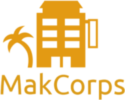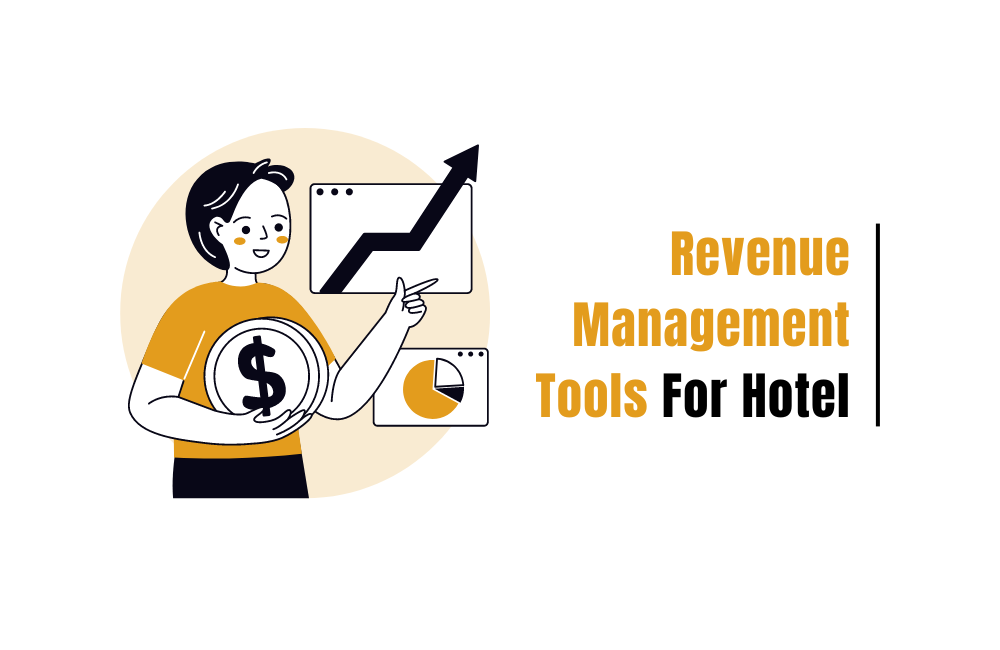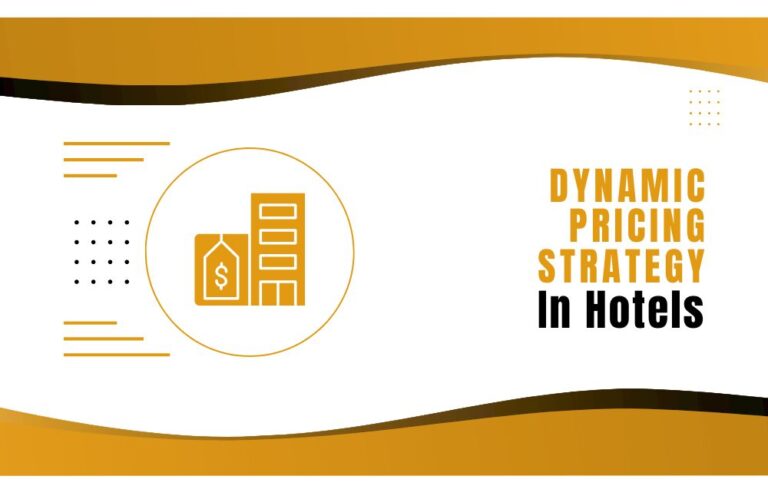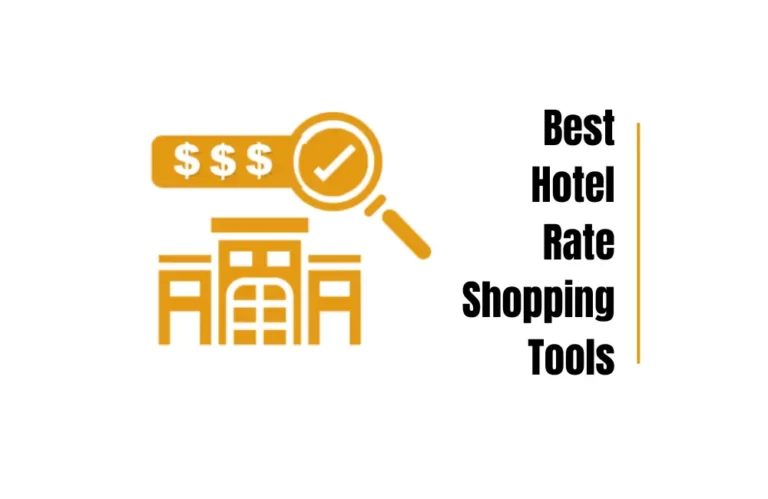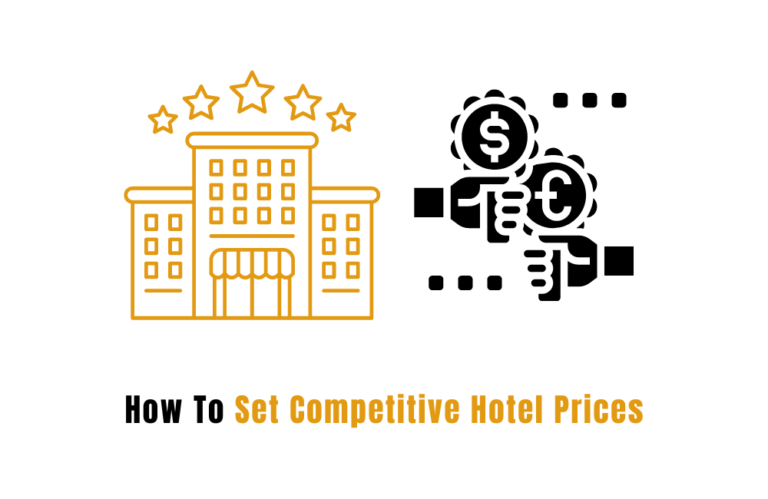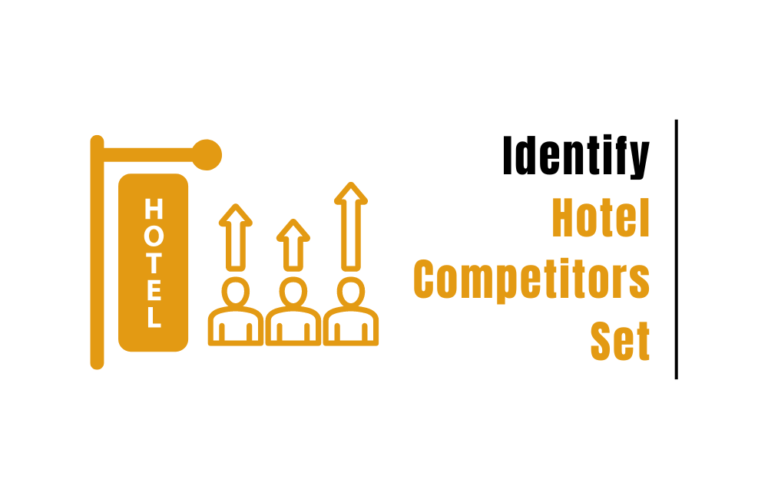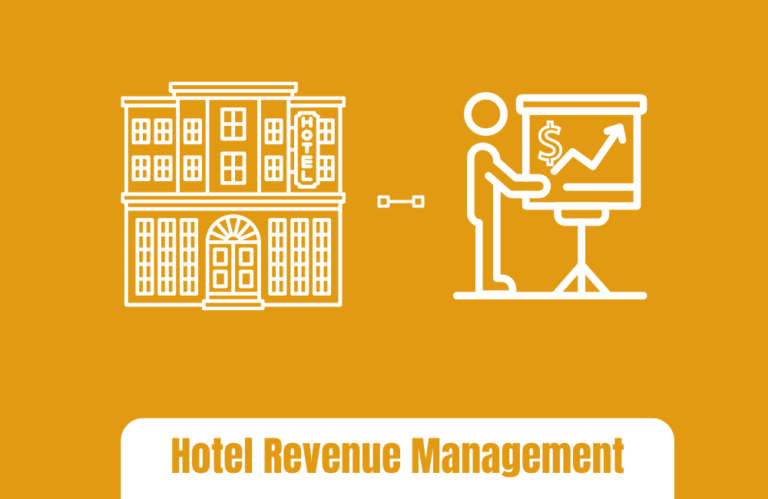10 Best Hotel Revenue Management Tools In 2025
If spreadsheets are still your go-to for managing hotel revenue, it’s time for an upgrade.
Modern revenue management tools are designed to simplify your processes, save time, and help you achieve higher profitability. These tools can analyze real-time data and forecast demand which allow you to make informed pricing and inventory decisions.
In this blog, we’re uncovering the 10 best hotel revenue management tools for 2025 to revolutionize your approach.
Whether you’re looking to improve efficiency, increase occupancy, or maximize revenue, these tools can help make your hotel revenue management strategies more effective and set your property up for long-term success.
Here are some of the most practical and useful tools that you can utilize to manage your business.
1. MakCorps Hotel Price API
MakCorps Hotel Price API is a secret weapon for hoteliers when it comes to managing their revenues.
It pulls hotel pricing data from over 200 OTAs which enables you to track real-time hotel pricing of your competitors.
By adopting dynamic pricing based on real-time data, you ensure that your rates are always competitive, not too low or too high thereby you can maximize occupancy and drive more revenue. Check out in the video below, how to use MakCorps API.
Pros – Real-Time Updations of Price Trends through 200 plus OTA platforms. Plus, also provides historical hotel pricing data.
Cons – Doesn’t offer auto-generated pricing decisions to hoteliers.
Pricing – 3500$ for a year/-
2. Duetto
Duetto is a robust revenue management system that equips hoteliers with the power to utilize big data from the hospitality industry which enables them to optimize pricing and implement effective yield management strategies.
It provides actionable insights and real-time personalization and offers a fresh perspective on pricing and demand. This real-time data keeps hoteliers updated and allow them to optimize profit and guest loyalty.
Duetto’s solutions address the challenges of today’s distribution landscape and have become an important tool used for enhancing yield management strategies in the hotel industry.
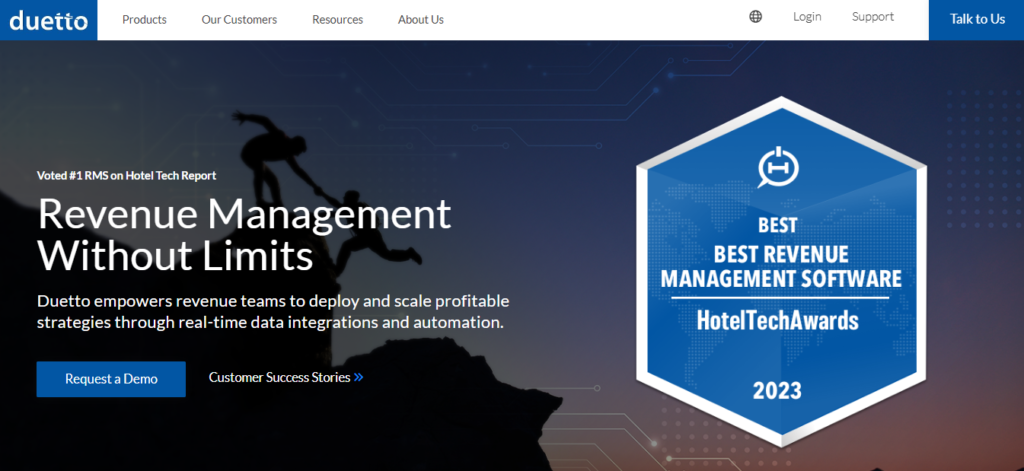
Pros – Easy to run reports and flexibility to customize it.
Cons – Make the report section more visual.
Pricing – Contact To Customer Support To Know Pricing
3. Cloudbeds
The Cloudbeds Pricing Intelligence Engine (PIE) is another revenue management software for hotels that empowers properties to take their pricing strategies into their own hands. It automates the adjustment of rates in the PMS as per current market conditions.
It uses performance data, local market data, competitor rates, and other essential analytics to predict and analyze consumer demands so that they can make data-based decisions. It helps to maximize revenue and profits for hoteliers and thus aiding them in better revenue management.
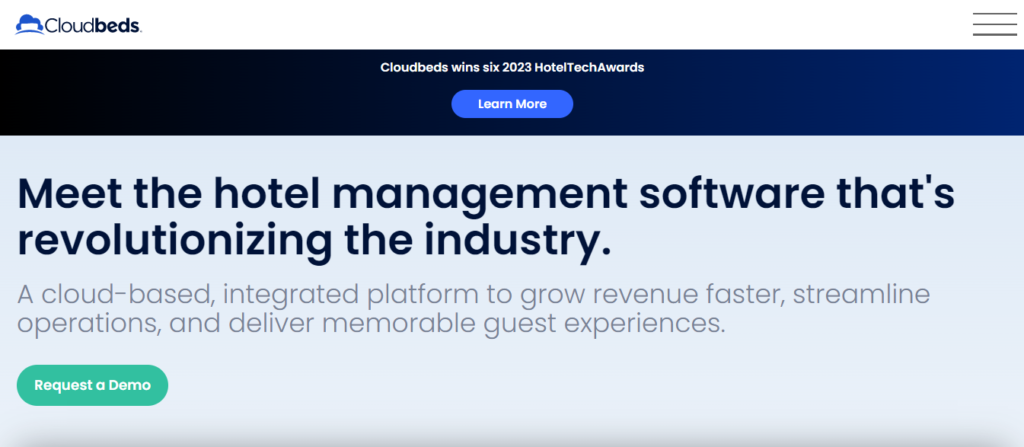
Pros – It is an effective solution for both small and medium-sized hotel chains.
Cons – Limited applicability to large-scale hotel chains.
Pricing – Pricing differs according to the number of hotels and rooms.
4. Atomize
Atomize is an innovative solution that is used as revenue management software in hotels. By automatically setting optimal rates for hotel rooms, it helps them increase their revenue when the demand is high.
Similarly, it also helps in increasing hotel occupancy rates and managing their overall revenue by lowering prices and attracting more customers.
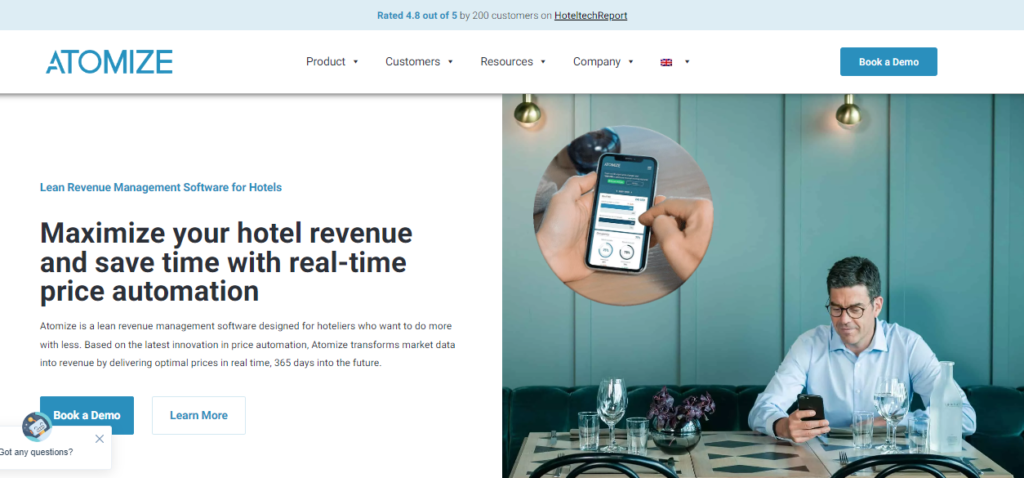
Pros – it is easier to use for users who are less accustomed to this type of system and provides real-time information.
Cons – The system is currently driven by historical performance when it provides price recommendations. A “market demand” driven recommendation will help even better.
Pricing – Basic subscription starts with €299 per month.
5. Pace Revenue
Pace Revenue is a competitive revenue management for the hospitality industry that delivers real-time automated decision intelligence and industry-leading Business intelligence delivered through an intuitive cloud platform.
It helps revenue managers to stay proactive in nature by crucial business insights in the real-time so that they can accordingly optimize their decisions towards enhanced revenue management.
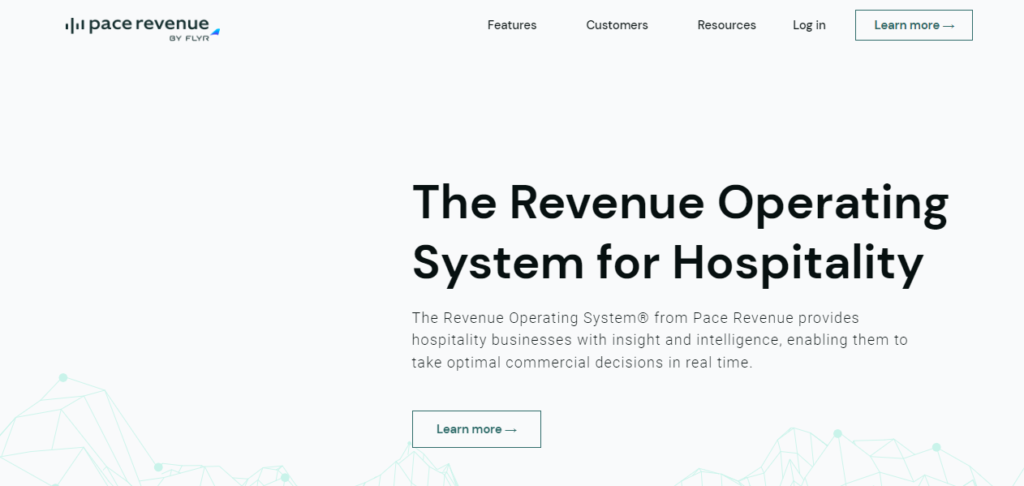
Pros – Easy-to-use for any revenue manager, including truly native business intelligence.
Cons – The freezing of price mechanics could be improved by allowing a user to block specific prices for certain room types.
Price: Contact Customer Support To Know Pricing
6. Room Price Genie
RoomPriceGenie is a useful revenue management tool for hotels that allows you to update all prices in your PMS or Channel Manager with a single click. It provides auto-updates whenever there is new information available.
It offers smart strategic foresight around the year with intelligent pricing recommendations, updated multiple times a day to optimize your occupancy rates and revenue generation.
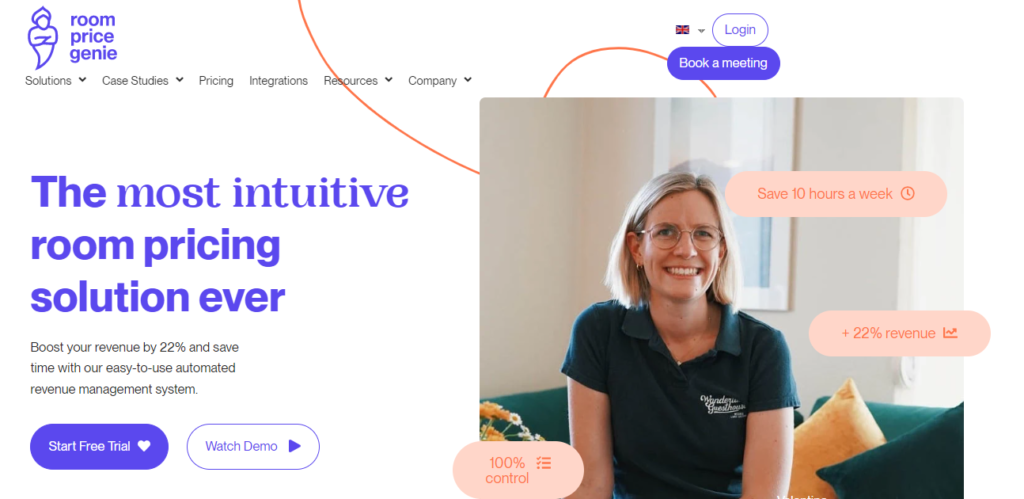
Pros – One of the easiest RMS to manage in the market, it can be almost fully automated.
Cons – There could have been benchmarks to measure results.
Pricing – The Starter plan is $142/month, the Advanced plan is $191/month, and the Professional plan is $479/month, with discounts available on annual plans.
7. IDeaS
IDeaS is one of the best revenue management software on the market able to make intelligent Minimum Length Of Stay Restrictions updates, depending on forecasted demand and customer behavior.
It helps hoteliers avoid overbooking and low bookings by automatically estimating how many no-shows or last-minute cancellations will occur and adjusting availability accordingly.
This helps revenue managers maximize occupancy rates and optimize revenue through strategic planning and data-driven decisions.
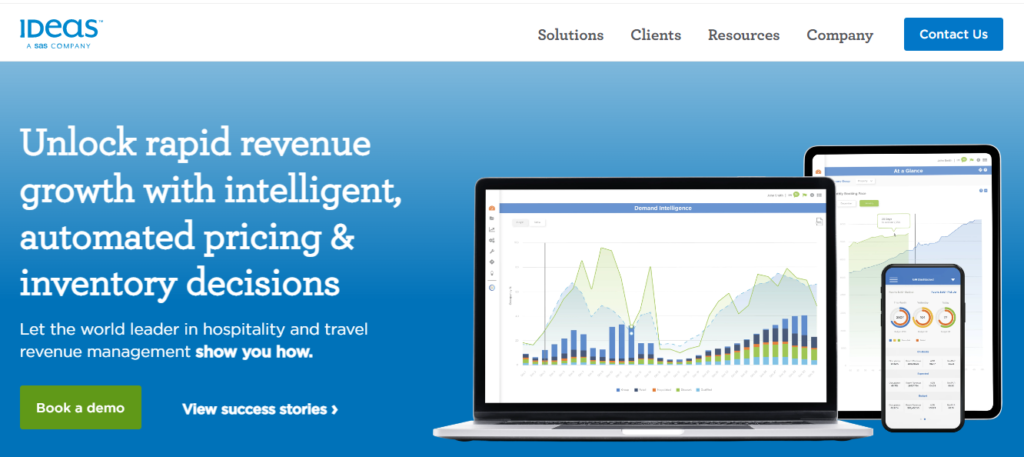
Pros – Allows revenue managers to drill down into crucial data like lead time, booking sources, market segments, etc.
Cons – Quicker reaction time to the hotel when it is going into high season or out of high season would be helpful.
Pricing – Pricing is flexible and depends on number of rooms.
8. BEONx
BEONx is a useful hotel revenue management solution that enables hotels to make informed decisions based on high-quality data that feeds into a highly adaptive AI-driven algorithm.
It provides you with the most accurate pricing recommendations in any given situation so that you can maximize your revenue generation.
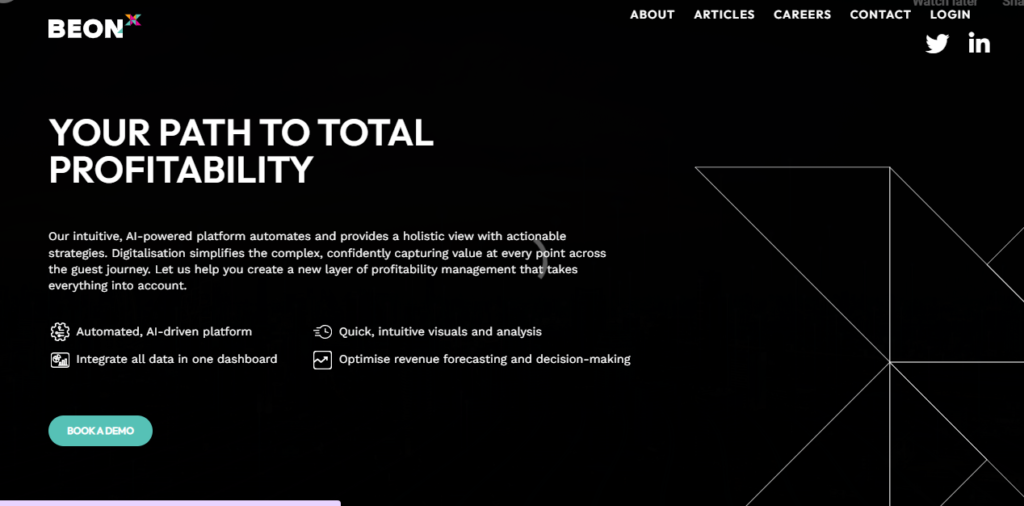
Pros – Necessary information in an understandable and easy-on-the-eye format, Fully configurable tables with all industry KPIs
Cons – Could have more support from accounts via WhatsApp and/or skype. It is limited to email and phone.
Pricing – Contact Customer Support To Know the Pricing
9. Smartpricing
Smartpricing is one of the best types of revenue management systems that monitor hotel & market data and assesses your facility’s performance over 100 times a day.
It offers smart algorithms that generate the most profitable rate based on current demand, availability, trends, and historical data. Based on the data, it creates optimal prices for all room types that are automatically published across your website and OTAs, in the real time.
This helps revenue managers to lower their manual efforts while maximizing their revenue generation and profitability.
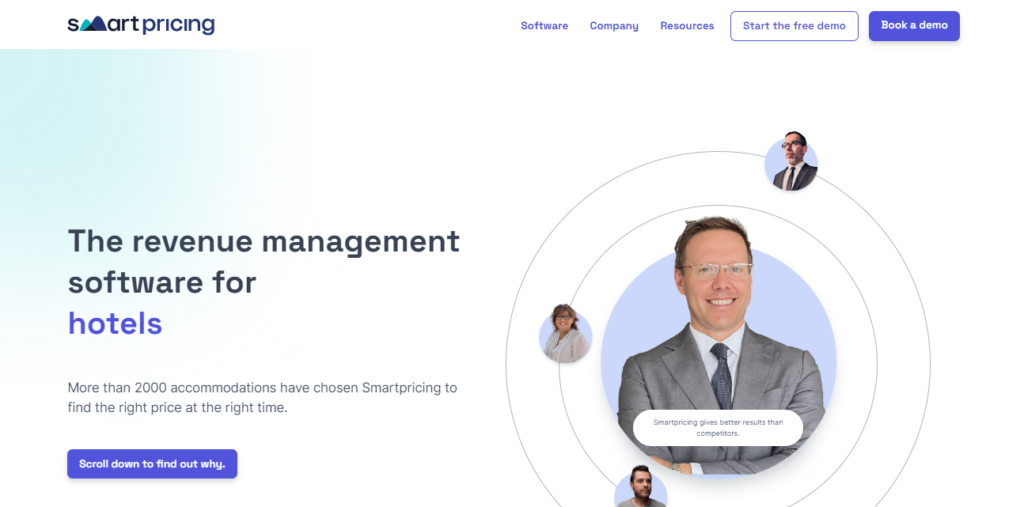
Pros- It is easy to use, intuitive, and allows you to always have the right room price.
Cons – The simplification of reading the graphic reports is still very little.
Pricing – Pricing varies based on accommodation type and room selection. For the best quote, visit the pricing section, answer a few questions, and receive your personalized rate.
10. Cendyn
Cendyn is a pricing and revenue management tool that drives profitability and guest loyalty through an integrated technology platform.
It aligns revenue, eCommerce, distribution, marketing, and sales teams with centralized data, applications, and analytics, so they can capture more demand and accelerate growth. It provides rules-based automation with the right level of control that revenue managers crave.
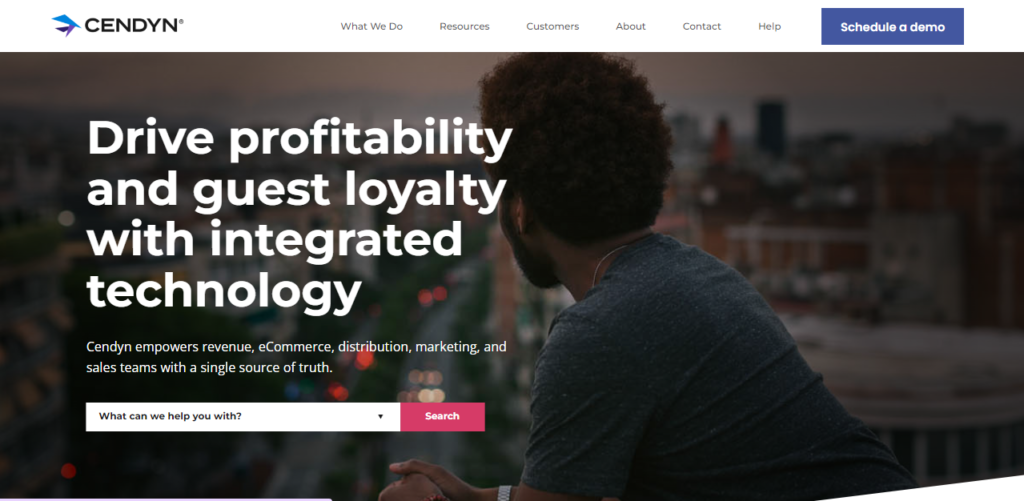
Pros – It’s easy to use, detailed reporting, and flexibility of forecast to adapt to business trends.
Cons – The implementation of dynamic pricing segmentation based on room types, allowing rates for different room types to fluctuate independently, is still missing.
Pricing – Contact the customer care support team to know the pricing.
Frequently Asked Questions:
What Is The Main Goal Of Revenue Management?
The goal of an RMS is to maximize revenue by selling the right product to the right customer at the right price at the right time.
What are the Benefits of Hotel Revenue Management Systems (RMS)?
Hotel Revenue Management Systems (RMS) offer a range of benefits that help hotels improve their revenue and profit, manage their inventory more effectively, and enhance the customer experience.
RMS uses data analysis and optimization algorithms to set dynamic prices that respond to changes in demand, seasonality, and competitor pricing.
